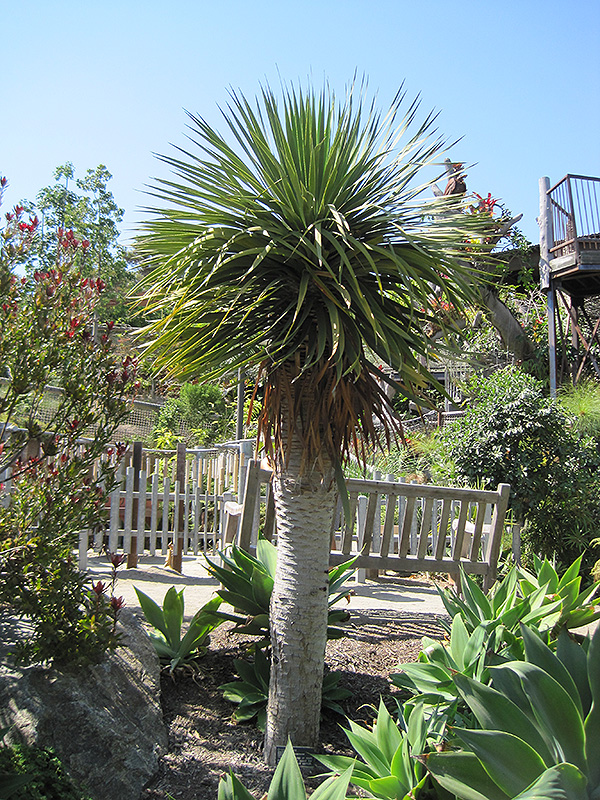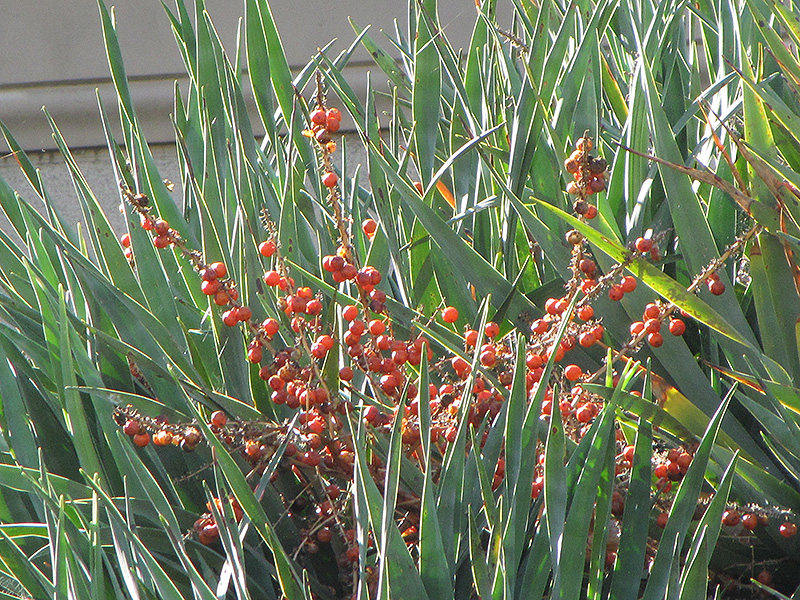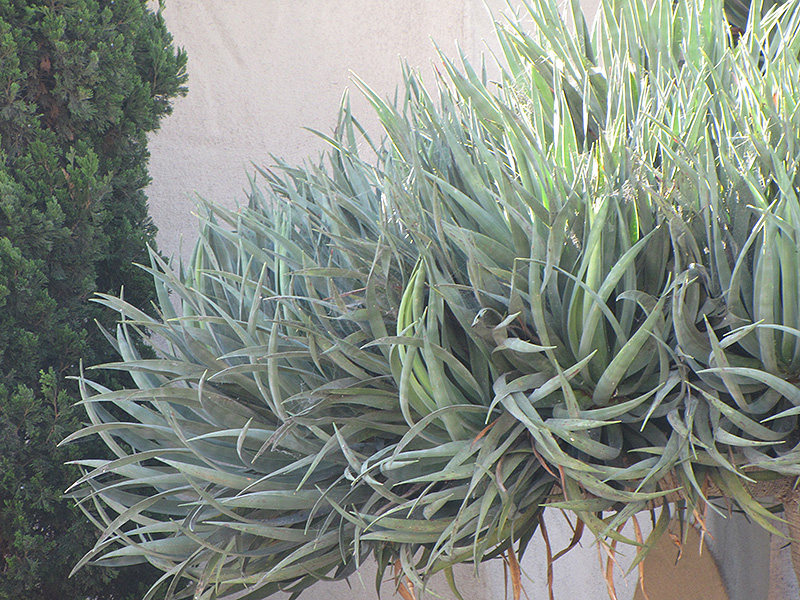>> Home
Height: 20 feet
Spread: 20 feet
Sunlight:
![]()
![]()
Hardiness Zone: 8b
Description:
An interesting succulent plant that is often used as a houseplant; will grow quite large if planted outdoors in frost free areas; greenish white flowers in summer are followed by attractive orange berries; great for containers
Ornamental Features
Dragon Tree is primarily grown for its highly ornamental fruit. It features an abundance of magnificent orange berries from late summer to early fall. It has attractive bluish-green evergreen foliage which emerges light green in spring. The succulent narrow leaves are highly ornamental and remain bluish-green throughout the winter.
Landscape Attributes
Dragon Tree is a multi-stemmed evergreen tree with an upright spreading habit of growth. Its average texture blends into the landscape, but can be balanced by one or two finer or coarser trees or shrubs for an effective composition.
This is a relatively low maintenance tree. When pruning is necessary, it is recommended to only trim back the new growth of the current season, other than to remove any dieback. It has no significant negative characteristics.
Dragon Tree is recommended for the following landscape applications;
- Shade
- General Garden Use
- Container Planting
Planting & Growing
Dragon Tree will grow to be about 20 feet tall at maturity, with a spread of 20 feet. It has a low canopy with a typical clearance of 5 feet from the ground, and is suitable for planting under power lines. It grows at a slow rate, and under ideal conditions can be expected to live for 60 years or more.
This tree does best in full sun to partial shade. It prefers dry to average moisture levels with very well-drained soil, and will often die in standing water. It is considered to be drought-tolerant, and thus makes an ideal choice for xeriscaping or the moisture-conserving landscape. It is not particular as to soil type or pH. It is somewhat tolerant of urban pollution. This species is not originally from North America.
Dragon Tree is a fine choice for the yard, but it is also a good selection for planting in outdoor pots and containers. Its large size and upright habit of growth lend it for use as a solitary accent, or in a composition surrounded by smaller plants around the base and those that spill over the edges. It is even sizeable enough that it can be grown alone in a suitable container. Note that when grown in a container, it may not perform exactly as indicated on the tag - this is to be expected. Also note that when growing plants in outdoor containers and baskets, they may require more frequent waterings than they would in the yard or garden. Be aware that in our climate, most plants cannot be expected to survive the winter if left in containers outdoors, and this plant is no exception. Contact our experts for more information on how to protect it over the winter months.


